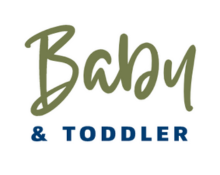
Preparing the nipples for breastfeeding can help ensure a smoother and more comfortable breastfeeding experience. Here are some tips to help prepare your nipples:
Gentle Cleansing: During pregnancy, you can gently cleanse your nipples with water during your regular shower or bath. Avoid harsh soaps or scrubbing the nipples vigorously, as this can cause dryness and irritation.
Air Drying: After cleansing, allow your nipples to air dry naturally. Avoid using towels or fabrics that can rub or irritate the nipples.
Avoid Nipple Stimulation: It’s generally recommended to avoid excessive stimulation of the nipples before birth, as this can trigger early contractions. Be cautious with activities such as nipple stimulation, excessive breast massage, or pumping before the baby is due.
Moisturize and Protect: Consider using a lanolin-based nipple cream, nipple balm or breast massage oil recommended by healthcare professionals. These products help keep the nipples hydrated and provide a protective barrier against dryness and cracking.
Check for Flat or Inverted Nipples: If you have flat or inverted nipples, consult with a lactation consultant or healthcare provider. They can provide guidance and suggest techniques to prepare your nipples for breastfeeding, such as nipple shields, breast shells, nipple formers or performing gentle nipple exercises.
Attend Prenatal Breastfeeding Classes: Prenatal breastfeeding classes offer valuable information and guidance on nipple care and breastfeeding techniques. These classes can provider you with practical tips and strategies for successful breastfeeding.
Seek Support: Reach out to a lactation consultant or breastfeeding support group during your pregnancy. They can offer personalized advice, answer your questions, and provide reassurance and support as you prepare for breastfeeding.
It’s important to note that every woman’s body and breastfeeding experience is unique. Some women may experience soreness or tenderness in the early days of breastfeeding, but this usually improves as the breastfeeding relationship is established. If you encounter persistent pain, difficulty with latching, or any concerns about your nipples, seek help from a healthcare professional or lactation consultant for further evaluation and assistance.
